#Revolution
Text
#shiadanni#state champs#bored girl#woman beauty#revolution#breathless#delacour20#short skirt#feeling cute
1K notes
·
View notes
Text
#crow#boku no hero academia#george weasley x reader#keto#fit#revolution#park shin hye#prince#regina mills#my sims
121 notes
·
View notes
Text
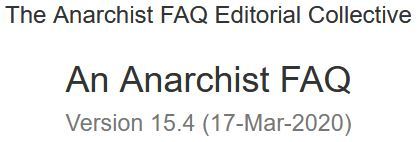
A.2.12 Is consensus an alternative to direct democracy?
The few anarchists who reject direct democracy within free associations generally support consensus in decision making. Consensus is based upon everyone on a group agreeing to a decision before it can be put into action. Thus, it is argued, consensus stops the majority ruling the minority and is more consistent with anarchist principles.
Consensus, although the “best” option in decision making, as all agree, has its problems. As Murray Bookchin points out in describing his experience of consensus, it can have authoritarian implications:
“In order… to create full consensus on a decision, minority dissenters were often subtly urged or psychologically coerced to decline to vote on a troubling issue, inasmuch as their dissent would essentially amount to a one-person veto. This practice, called ‘standing aside’ in American consensus processes, all too often involved intimidation of the dissenters, to the point that they completely withdrew from the decision-making process, rather than make an honourable and continuing expression of their dissent by voting, even as a minority, in accordance with their views. Having withdrawn, they ceased to be political beings--so that a ‘decision’ could be made… . ‘consensus’ was ultimately achieved only after dissenting members nullified themselves as participants in the process.
“On a more theoretical level, consensus silenced that most vital aspect of all dialogue, dissensus. The ongoing dissent, the passionate dialogue that still persists even after a minority accedes temporarily to a majority decision,… [can be] replaced… .by dull monologues — and the uncontroverted and deadening tone of consensus. In majority decision-making, the defeated minority can resolve to overturn a decision on which they have been defeated — they are free to openly and persistently articulate reasoned and potentially persuasive disagreements. Consensus, for its part, honours no minorities, but mutes them in favour of the metaphysical ‘one’ of the ‘consensus’ group.” [“Communalism: The Democratic Dimension of Anarchism”, Democracy and Nature, no. 8, p. 8]
Bookchin does not “deny that consensus may be an appropriate form of decision-making in small groups of people who are thoroughly familiar with one another.” But he notes that, in practical terms, his own experience has shown him that “when larger groups try to make decisions by consensus, it usually obliges them to arrive at the lowest common intellectual denominator in their decision-making: the least controversial or even the most mediocre decision that a sizeable assembly of people can attain is adopted—precisely because everyone must agree with it or else withdraw from voting on that issue” [Op. Cit., p.7]
Therefore, due to its potentially authoritarian nature, most anarchists disagree that consensus is the political aspect of free association. While it is advantageous to try to reach consensus, it is usually impractical to do so — especially in large groups — regardless of its other, negative effects. Often it demeans a free society or association by tending to subvert individuality in the name of community and dissent in the name of solidarity. Neither true community nor solidarity are fostered when the individual’s development and self-expression are aborted by public disapproval and pressure. Since individuals are all unique, they will have unique viewpoints which they should be encouraged to express, as society evolves and is enriched by the actions and ideas of individuals.
In other words, anarchist supporters of direct democracy stress the ”creative role of dissent” which, they fear, “tends to fade away in the grey uniformity required by consensus.” [Op. Cit., p. 8]
We must stress that anarchists are not in favour of a mechanical decision making process in which the majority just vote the minority away and ignore them. Far from it! Anarchists who support direct democracy see it as a dynamic debating process in which majority and minority listen to and respect each other as far possible and create a decision which all can live with (if possible). They see the process of participation within directly democratic associations as the means of creating common interests, as a process which will encourage diversity, individual and minority expression and reduce any tendency for majorities to marginalise or oppress minorities by ensuring discussion and debate occurs on important issues.
#faq#anarchy faq#revolution#anarchism#daily posts#communism#anti capitalist#anti capitalism#late stage capitalism#organization#grassroots#grass roots#anarchists#libraries#leftism#social issues#economy#economics#climate change#climate crisis#climate#ecology#anarchy works#environmentalism#environment#solarpunk#anti colonialism#mutual aid#cops#police
26 notes
·
View notes
Photo
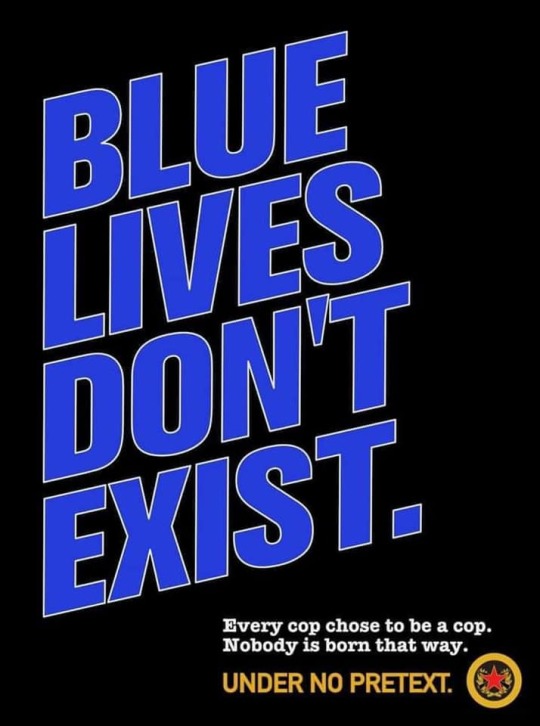
#anarchocommunist#communism#anarchism#revolution#antifascism#anarchist#socialism#anarchocommunism#anarchy#antifa#communist#antifascist#socialist
24K notes
·
View notes
Text
"The idea of reforming Omelas is a pleasant idea, to be sure, but it is one that Le Guin herself specifically tells us is not an option. No reform of Omelas is possible — at least, not without destroying Omelas itself:
If the child were brought up into the sunlight out of that vile place, if it were cleaned and fed and comforted, that would be a good thing, indeed; but if it were done, in that day and hour all the prosperity and beauty and delight of Omelas would wither and be destroyed. Those are the terms.
'Those are the terms', indeed. Le Guin’s original story is careful to cast the underlying evil of Omelas as un-addressable — not, as some have suggested, to 'cheat' or create a false dilemma, but as an intentionally insurmountable challenge to the reader. The premise of Omelas feels unfair because it is meant to be unfair. Instead of racing to find a clever solution ('Free the child! Replace it with a robot! Have everyone suffer a little bit instead of one person all at once!'), the reader is forced to consider how they might cope with moral injustice that is so foundational to their very way of life that it cannot be undone. Confronted with the choice to give up your entire way of life or allow someone else to suffer, what do you do? Do you stay and enjoy the fruits of their pain? Or do you reject this devil’s compromise at your own expense, even knowing that it may not even help? And through implication, we are then forced to consider whether we are — at this very moment! — already in exactly this situation. At what cost does our happiness come? And, even more significantly, at whose expense? And what, in fact, can be done? Can anything?
This is the essential and agonizing question that Le Guin poses, and we avoid it at our peril. It’s easy, but thoroughly besides the point, to say — as the narrator of 'The Ones Who Don’t Walk Away' does — that you would simply keep the nice things about Omelas, and work to address the bad. You might as well say that you would solve the trolley problem by putting rockets on the trolley and having it jump over the people tied to the tracks. Le Guin’s challenge is one that can only be resolved by introspection, because the challenge is one levied against the discomforting awareness of our own complicity; to 'reject the premise' is to reject this (all too real) discomfort in favor of empty wish fulfillment. A happy fairytale about the nobility of our imagined efforts against a hypothetical evil profits no one but ourselves (and I would argue that in the long run it robs us as well).
But in addition to being morally evasive, treating Omelas as a puzzle to be solved (or as a piece of straightforward didactic moralism) also flattens the depth of the original story. We are not really meant to understand Le Guin’s 'walking away' as a literal abandonment of a problem, nor as a self-satisfied 'Sounds bad, but I’m outta here', the way Vivier’s response piece or others of its ilk do; rather, it is framed as a rejection of complacency. This is why those who leave are shown not as triumphant heroes, but as harried and desperate fools; hopeless, troubled souls setting forth on a journey that may well be doomed from the start — because isn’t that the fate of most people who set out to fight the injustices they see, and that they cannot help but see once they have been made aware of it? The story is a metaphor, not a math problem, and 'walking away' might just as easily encompass any form of sincere and fully committed struggle against injustice: a lonely, often thankless journey, yet one which is no less essential for its difficulty."
- Kurt Schiller, from "Omelas, Je T'aime." Blood Knife, 8 July 2022.
#kurt schiller#ursula k. le guin#quote#quotations#the ones who walk away from omelas#trolley problem#activism#introspection#discomfort#reform#revolution#suffering#ethics#morality
10K notes
·
View notes
Photo
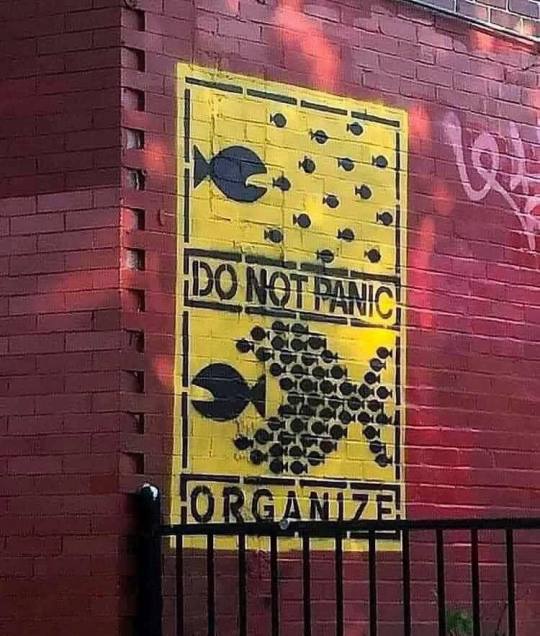
#anarchism#anarchist#acab#antifascism#anarchocommunism#anarcho#anarchopunk#communism#revolution#antifascist#antifa#communist#anarchocommunist
15K notes
·
View notes
Text
The ice maker makes revolution
#funny#ice wizard#silly#cgi animation#ice maker#lilicewizard#war#revolution#cute#bandana#dreams ps4#fire
2K notes
·
View notes
Text
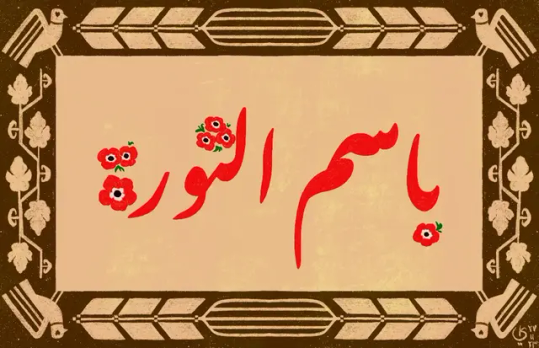
'In the name of revolution'
During the 2nd Intifada it was a popular slogan, that women embroidered on their dresses 🫒✌🏽
#the border features tatreez#traditional art#art#digital art#artists on tumblr#palestine#nature#bird#dove#revolution#flower#poppy
3K notes
·
View notes
Photo

Bunker Buster
#billionaires#elon musk#jeff bezos#revolution#anarchism#capitalism#socialism#apocalypse#political cartoon
17K notes
·
View notes
Text

March 8th: International Women's Day
The Palestinian woman: the guardian of the dream and the shield of the revolution
(Popular Front for the Liberation of Palestine, 2024)
#pflp#popular front for the liberation of palestine#march 8th#international working women's day#international women's day#free palestine#palestine#feminism#women#guerrilla#communism#revolution#poster#propaganda#posters#2024
1K notes
·
View notes
Photo
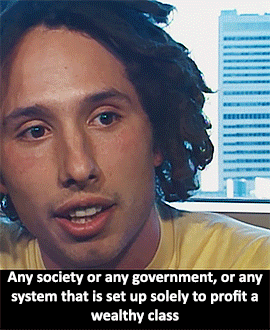
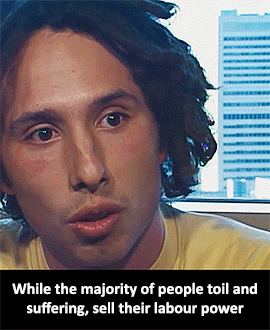
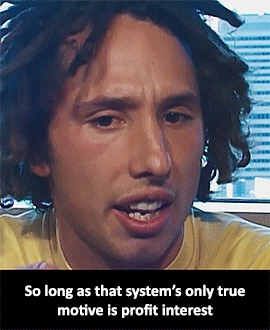
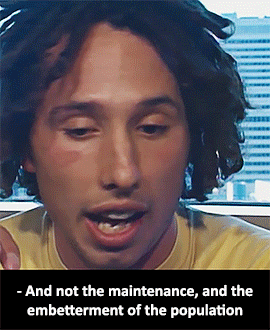

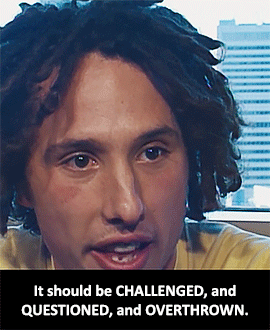
Zack de la Rocha of Rage Against the Machine, 1997 [x]
#Rage Against the Machine#Zack de la Rocha#ratm#ZDLR#anti capitalism#capitalism#anti establishment#authoritarian#anti authoritarian#anarchy#anarchism#socialism#revolution#oppression#politics#class struggle#class war#class warfare#rebel#rebellion#protest#1990s#90s#1997#my gifs
9K notes
·
View notes
Text

FUCK!!!!!!!! FFFUUUCCCKKK!!!!!!!!!!!!!!!!!!! MIRACULOUS LADYBUG GOOD!!!!!!!!!!!!!!!!!! AAAAAAAAAAAAAAAAAAAAAAAAAA
#this scene made me cry#like actual tears#what the fuck miraculous ladybug what the FUCK#anyway aaaa PAINTING BE APON YEE#my art#miraculous ladybug spoilers#mlb spoilers#ml spoilers#miraculous ladybug season 5#revolution#ml revolution#mlb revolution#miraculous ladybug revolution#ml#mlb#miraculous#miraculous ladybug#adrien agreste#marinette dupain cheng#adrinette#kiss
5K notes
·
View notes
Text
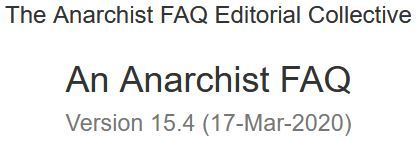
A.2.13 Are anarchists individualists or collectivists?
The short answer is: neither. This can be seen from the fact that liberal scholars denounce anarchists like Bakunin for being “collectivists” while Marxists attack Bakunin and anarchists in general for being “individualists.”
This is hardly surprising, as anarchists reject both ideologies as nonsense. Whether they like it or not, non-anarchist individualists and collectivists are two sides of the same capitalist coin. This can best shown be by considering modern capitalism, in which “individualist” and “collectivist” tendencies continually interact, often with the political and economic structure swinging from one pole to the other. Capitalist collectivism and individualism are both one-sided aspects of human existence, and like all manifestations of imbalance, deeply flawed.
For anarchists, the idea that individuals should sacrifice themselves for the “group” or “greater good” is nonsensical. Groups are made up of individuals, and if people think only of what’s best for the group, the group will be a lifeless shell. It is only the dynamics of human interaction within groups which give them life. “Groups” cannot think, only individuals can. This fact, ironically, leads authoritarian “collectivists” to a most particular kind of “individualism,” namely the “cult of the personality” and leader worship. This is to be expected, since such collectivism lumps individuals into abstract groups, denies their individuality, and ends up with the need for someone with enough individuality to make decisions — a problem that is “solved” by the leader principle. Stalinism and Nazism are excellent examples of this phenomenon.
Therefore, anarchists recognise that individuals are the basic unit of society and that only individuals have interests and feelings. This means they oppose “collectivism” and the glorification of the group. In anarchist theory the group exists only to aid and develop the individuals involved in them. This is why we place so much stress on groups structured in a libertarian manner — only a libertarian organisation allows the individuals within a group to fully express themselves, manage their own interests directly and to create social relationships which encourage individuality and individual freedom. So while society and the groups they join shapes the individual, the individual is the true basis of society. Hence Malatesta:
“Much has been said about the respective roles of individual initiative and social action in the life and progress of human societies … [E]verything is maintained and kept going in the human world thanks to individual initiative … The real being is man, the individual. Society or the collectivity — and the State or government which claims to represent it — if it is not a hollow abstraction, must be made up of individuals. And it is in the organism of every individual that all thoughts and human actions inevitably have their origin, and from being individual they become collective thoughts and acts when they are or become accepted by many individuals. Social action, therefore, is neither the negation nor the complement of individual initiatives, but is the resultant of initiatives, thoughts and actions of all individuals who make up society … [T]he question is not really changing the relationship between society and the individual … [I]t is a question of preventing some individuals from oppressing others; of giving all individuals the same rights and the same means of action; and of replacing the initiative to the few [which Malatesta defines as a key aspect of government/hierarchy], which inevitably results in the oppression of everyone else … “ [Anarchy, pp. 38–38]
These considerations do not mean that “individualism” finds favour with anarchists. As Emma Goldman pointed out, ”‘rugged individualism’… is only a masked attempt to repress and defeat the individual and his individuality. So-called Individualism is the social and economic laissez-faire: the exploitation of the masses by the [ruling] classes by means of legal trickery, spiritual debasement and systematic indoctrination of the servile spirit … That corrupt and perverse ‘individualism’ is the straitjacket of individuality .. [It] has inevitably resulted in the greatest modern slavery, the crassest class distinctions driving millions to the breadline. ‘Rugged individualism’ has meant all the ‘individualism’ for the masters, while the people are regimented into a slave caste to serve a handful of self-seeking ‘supermen.’” [Red Emma Speaks, p. 112]
While groups cannot think, individuals cannot live or discuss by themselves. Groups and associations are an essential aspect of individual life. Indeed, as groups generate social relationships by their very nature, they help shape individuals. In other words, groups structured in an authoritarian way will have a negative impact on the freedom and individuality of those within them. However, due to the abstract nature of their “individualism,” capitalist individualists fail to see any difference between groups structured in a libertarian manner rather than in an authoritarian one — they are both “groups”. Because of their one-sided perspective on this issue, “individualists” ironically end up supporting some of the most “collectivist” institutions in existence — capitalist companies — and, moreover, always find a need for the state despite their frequent denunciations of it. These contradictions stem from capitalist individualism’s dependence on individual contracts in an unequal society, i.e. abstract individualism.
In contrast, anarchists stress social “individualism” (another, perhaps better, term for this concept could be “communal individuality”). Anarchism “insists that the centre of gravity in society is the individual — that he [sic] must think for himself, act freely, and live fully… . If he is to develop freely and fully, he must be relieved from the interference and oppression of others… . [T]his has nothing in common with… ‘rugged individualism.’ Such predatory individualism is really flabby, not rugged. At the least danger to its safety, it runs to cover of the state and wails for protection… .Their ‘rugged individualism’ is simply one of the many pretences the ruling class makes to mask unbridled business and political extortion.” [Emma Goldman, Op. Cit., pp. 442–3]
Anarchism rejects the abstract individualism of capitalism, with its ideas of “absolute” freedom of the individual which is constrained by others. This theory ignores the social context in which freedom exists and grows. “The freedom we want,” Malatesta argued, “for ourselves and for others, is not an absolute metaphysical, abstract freedom which in practice is inevitably translated into the oppression of the weak; but it is a real freedom, possible freedom, which is the conscious community of interests, voluntary solidarity.” [Anarchy, p. 43]
A society based on abstract individualism results in an inequality of power between the contracting individuals and so entails the need for an authority based on laws above them and organised coercion to enforce the contracts between them. This consequence is evident from capitalism and, most notably, in the “social contract” theory of how the state developed. In this theory it is assumed that individuals are “free” when they are isolated from each other, as they allegedly were originally in the “state of nature.” Once they join society, they supposedly create a “contract” and a state to administer it. However, besides being a fantasy with no basis in reality (human beings have always been social animals), this “theory” is actually a justification for the state’s having extensive powers over society; and this in turn is a justification of the capitalist system, which requires a strong state. It also mimics the results of the capitalist economic relations upon which this theory is built. Within capitalism, individuals “freely” contract together, but in practice the owner rules the worker for as long as the contract is in place. (See sections A.2.14 and B.4 for further details).
Thus anarchists reject capitalist “individualism” as being, to quote Kropotkin, “a narrow and selfish individualism” which, moreover, is “a foolish egoism which belittles the individual” and is “not individualism at all. It will not lead to what was established as a goal; that is the complete broad and most perfectly attainable development of individuality.” The hierarchy of capitalism results in “the impoverishment of individuality” rather than its development. To this anarchists contrast “the individuality which attains the greatest individual development possible through the highest communist sociability in what concerns both its primordial needs and its relationships with others in general.” [Selected Writings on Anarchism and Revolution, p. 295, p. 296 and p. 297] For anarchists, our freedom is enriched by those around us when we work with them as equals and not as master and servant.
In practice, both individualism and collectivism lead to a denial of both individual liberty and group autonomy and dynamics. In addition, each implies the other, with collectivism leading to a particular form of individualism and individualism leading to a particular form of collectivism.
Collectivism, with its implicit suppression of the individual, ultimately impoverishes the community, as groups are only given life by the individuals who comprise them. Individualism, with its explicit suppression of community (i.e. the people with whom you live), ultimately impoverishes the individual, since individuals do not exist apart from society but can only exist within it. In addition, individualism ends up denying the “select few” the insights and abilities of the individuals who make up the rest of society, and so is a source of self-denial. This is Individualism’s fatal flaw (and contradiction), namely “the impossibility for the individual to attain a really full development in the conditions of oppression of the mass by the ‘beautiful aristocracies’. His [or her] development would remain uni-lateral.” [Peter Kropotkin, Anarchism, p. 293]
True liberty and community exist elsewhere.
#faq#anarchy faq#revolution#anarchism#daily posts#communism#anti capitalist#anti capitalism#late stage capitalism#organization#grassroots#grass roots#anarchists#libraries#leftism#social issues#economy#economics#climate change#climate crisis#climate#ecology#anarchy works#environmentalism#environment#solarpunk#anti colonialism#mutual aid#cops#police
21 notes
·
View notes
Text
If women all around the United States turned off their television sets for an extended period of time and purchased no products other than the very basic necessities to protest exploitation of women ... these actions would have significant political and economic consequences. Since women are not thoroughly organised and are daily manipulated by ruling male groups who profit from sexism and female consumerism, we have never exercised this power. Most women do not understand the forms of power they could exercise. They need political education for critical consciousness.
bell hooks, Feminist Theory: From Margin to Center (2000), p.94
1K notes
·
View notes
Text
When will the revolution come?
I think it's here. A revolution isn't when everyone collectively wakes up one day and goes "time to destroy the government", a revolution is just a series of events grouped together that we will call a revolution later. They take time. French revolution? 10 years. American revolution? 7 years. We're already underway - maybe we have been since as early as the BLM protests in 2020. What we need to do now is just do our part and build momentum
#the global intifada#revolution#i think tiktoks flowerboyserge has made videos about this go check him out#palestine#sudan#congo#yemen#haiti#syria#hawaii#all the oppressed people of the world#freedom for all#socialism#mine
1K notes
·
View notes
